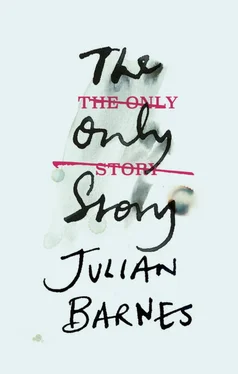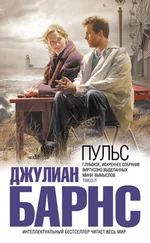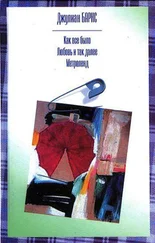‘Now you are sounding like an oracle.’
‘Then I’d better go and wash my mouth out with soap.’
One day, you return to find her with cuts and bruises to her face, and her arms held defensively against her.
‘I fell over that step in the garden,’ she says, as if it were a known hazard you had previously discussed. ‘I’m getting very trippy, I’m afraid.’
She is indeed getting ‘trippy’. Nowadays, as a reflex, you take her arm as you walk with her and keep watch for uneven pavements. But she also has a giveaway flush to her face. You call the doctor – not the private one she went to for her cheering-up pills.
Dr Kenny is a fussy, inquisitive middle-aged man, but the right sort of GP – one who believes that house calls provide useful background when it comes to diagnosis. You take him upstairs to Susan’s bedroom; her bruises are coming into full colour.
Downstairs again, he asks for a few words.
‘Of course.’
‘It’s rather puzzling,’ he begins. ‘It’s unusual for a woman of her age to take a fall.’
‘She’s been getting very trippy lately.’
‘Yes, that’s the word she used to me. And, if I may ask, you are…?’
‘I’m her lodger… no, more than that, kind of godson, I suppose.’
‘Hmm. And it’s just the two of you here?’
‘There are two more lodgers in the attic rooms.’ You decide not to promote Eric to the status of second godson.
‘Does she have family?’
‘Yes, but she’s kind of… estranged from them at the moment.’
‘So she has no support? Except for you, that is?’
‘I suppose not.’
‘As I say, it’s rather puzzling. Do you think there was drink involved?’
‘Oh no,’ you say swiftly, ‘she doesn’t drink. She hates the stuff. That’s one of the reasons she left her husband. He’s a drinker. Flagons and gallons,’ you add, without being able to stop yourself.
You realize two things. First, that you lie automatically to protect Susan – even if the truth might have helped her more. You also begin to see how your relationship, or rather, your cohabitation, might appear to an outsider.
‘So, if I may ask, what does she do all day?’
‘She… does some volunteer work for the Samaritans.’ This isn’t true either. Susan has mentioned the idea; though you are against it. You think she shouldn’t try to start helping others when she is the one needing help.
‘That’s not much, is it?’
‘Well, I suppose she… keeps house.’
He looks around. The place is clearly in a mess. You realize that he is finding your answers inadequate. And why shouldn’t he?
‘If it happens again, we’ll be obliged to investigate,’ he says. Then picks up his bag and leaves.
Investigate? you think. Investigate? He can tell you’ve been lying. But investigate what? Perhaps he guesses you are her lover, and suspects you might have been beating her up. Christ to that, you think: in your desire to protect her from being thought a drinker, you seem to be opening yourself up to a charge of assault. Perhaps he was giving you a final warning.
Not that the police would necessarily be interested. You remember an incident from a year or two before. You are in the car with Susan and have scarcely gone a quarter of a mile when you notice a couple rowing on the pavement. As you see the man bearing down on the woman you have flashbacks to the Macleod household. He is not exactly hitting her, but looks about to do so. Maybe they are drunk, you can’t tell. You wind down the window and the woman yells, ‘Call the police!’ Now he is holding her. ‘Call the police!’ You speed home, dial 999, and are picked up by a patrol car which takes you to the scene of the reported possible crime. The couple have moved on, but you soon track them down a couple of streets away. They are ten yards apart, bellowing obscenities at one another.
‘Oh, we know them,’ says the young constable. ‘It’s just a domestic.’
‘Aren’t you going to arrest him?’
The two of you are probably about the same age, but he knows he has seen more of life than you have.
‘Well, sir, it’s not our policy to interfere in domestics. I mean, not unless it really kicks off. They’re just having a bit of a barney by the looks of it. Friday night, after all.’
And then he drives the two of you home.
You realize that you want official interference into other people’s lives but not into your own. You also realize that your truthfulness has become dangerously flexible. And you wonder if you should have got out of the car and tried to pull the man away from the woman.
One of your problems is this: for a long time it remains inconceivable to you that she is a drinker. How could she be, given that her husband is a drinker, and drink disgusts her? She hates even the smell of it, as she hates the bogus emotions it sets off in people. It makes Macleod coarser, angrier, more crudely sentimental; when he grabbed her hair and forced a glass to her lips, she would rather the sherry went down her dress than her throat. Nor has anyone in her life ever offered a credible counterexample: alcohol as glamorous, as usefully disinhibiting, as fun, as something you can control, knowing when to give the stuff its hour and when to refuse it.
You believe her. You never query her increasing lapses and latenesses. When you come in to find her blank-faced and bleary, you tell yourself that she has mistakenly swallowed an extra cheering-up pill – which is sometimes the case. And because you inevitably believe that one of the reasons she is on anti-depressants is because you are failing to make her so happy that she doesn’t need them, you feel guilty, and this guilt forbids you from questioning her. So when, out of her bleariness, she looks up, pats the sofa beside her, and asks,
‘Where’ve you been all my life?’
you feel a ripping and a tearing inside you, and there is nothing you want more in the world than to make everything all right for her, and on her own terms, not yours. So you sit down next to her and take her wrists.
Just as you believe your love to be unique, you believe your problems – her problems – to be unique. You are too young to understand that all human behaviour falls into patterns and categories and that her – your – case is far from unique. You want her to be some kind of exception, rather than any kind of rule. If anyone had ventured such a word as co-dependency to you back then – assuming the term had even been invented – you would have laughed it off as American jargon. However, you might have been more impressed by a statistical linkage of which you were then unaware: that the partners of alcoholics, far from being repulsed by the habit – or rather, despite being repulsed by the habit – frequently succumb to it themselves.
But the next stage for you is to accept a percentage of the evidence in front of your eyes. You understand that in certain, very limited circumstances, she needs the small lift of a small drink – as she now occasionally admits. Obviously, she has to keep Joan company when she goes to the Village; obviously, she’s sometimes frightened by the increasing traffic on the roads, and by that sudden twisty climb over the hills, so a little nip helps her; obviously, she is sometimes very lonely when you’re away at college for most of the day. She also has ‘my bad time’, as she calls it – usually between five and six in the evening, though as the days draw in and dusk falls earlier, so her bad time accordingly starts earlier, and, obviously, extends just as late as it did before.
You believe what she says. You believe that the bottle she keeps beneath the sink, behind the bleach and washing-up liquid and silver polish, is the only bottle she drinks from. When she suggests that you put a pencil mark on the bottle so you can both monitor how much she drinks, you are heartened, and think these pencil marks are quite different from the ones on Eric’s whisky bottle. Nor do you imagine there are other bottles elsewhere. When friends try to tip you off – ‘I’m a bit worried about Susan’s drinking,’ says one, and ‘Boy, you could smell the booze from the other end of the phone,’ says another – you react in various ways. You protect her by denying it; you admit there are occasional lapses; you say the two of you have talked about it and she has promised ‘to see someone’. You may even say all three things in the course of a single conversation. But you will also be offended by your friends’ attempted helpfulness. Because you do not need help: the two of you, since you love one another, will be able to sort the matter out, thank you very much. And this slightly alienates your friends, and also alienates them from her. Increasingly, you find yourself saying, ‘She was just having a bad day’, and you believe it yourself by dint of repetition.
Читать дальше








